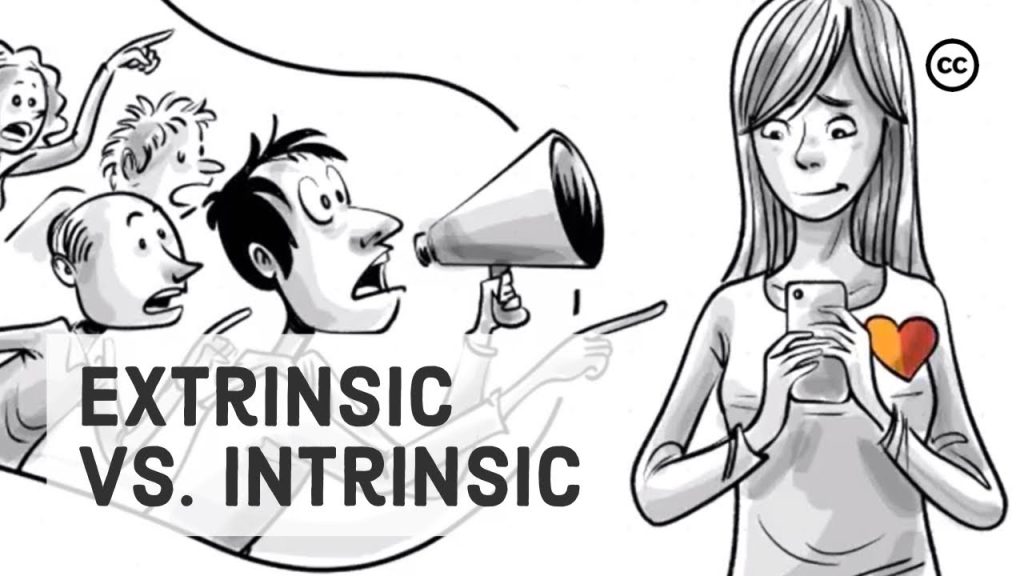Motivation is the experience of wanting something, or wanting to avoid it. When we study
how we get motivated to learn, develop, and succeed, we can identify two contrary
forces: extrinsic and intrinsic ones On the one hand, we want to belong, desire to
be loved and seek to get the attention we think we deserve. We are motivated extrinsically
by rewards, in order to progress socially. On the other hand, we strive to explore
things that are satisfying in themselves, disregarding rewards. We
are motivated intrinsically, by a natural curiosity which we follow because it
feels right. The opinions of others don’t matter. To understand why we probably
need a good mix of both, let's imagine two four year-old children.
Both
grow up in families that want only the best for their kids but have completely opposing
views on how to motivate them to succeed. Tom's parents believe that
all their boy needs is love. To not undermine his intrinsic interests, they
never praise him, or use rewards. Eventually they decide to not give him any feedback at
all, fearing it could corrupt his free mind. Over the years Tom develops an
immense capacity to imagine, spending most of his time playing by himself.
By being allowed to follow his passions, he learns what he likes and what he doesn’t.
But Tom doesn’t learn what others expect and gets easily irritated when he’s asked
to do something in a particular way. Mira’s parents believe that their
precious little girl needs clear rules about what's good and what's not.
They see it as their duty to help Mira learn by providing precise and actionable
feedback on all aspects of her young life. Mira spends her days in preschool, music
and ballet lessons.
Over the years she gets exceptionally good at the things that please
the adults around her. However, since there is neither time to play nor to relax, she doesn’t
discover her own interests. Being alone bores her. At 14, Tom is independent and begins writing
science fiction. He realises that he isn’t quite like his friends and spends most of his
time at the library. When he shares his writing, others can’t quite relate. At the same age, Mira
is at the top of her class and has plenty of friends and admirers.
She knows what is expected
of her and makes sure to meet those expectations. Sometimes the pressure becomes
unbearable, although that’s her secret. By the day he turns 21, Tom has a unique
perspective of the world. He is intelligent, but doesn't like to work for money and hence is
often broke. He hates the idea of conforming to conventional norms and is annoyed if someone
interferes with his creative expression. At this point Tom knows alot about himself
but doesn’t connect well with others. To him, people seem to follow rules
without questioning them— just like sheep. Integrating into the society is difficult at
this point and he begins to search for utopia.
Mira makes it into a top medical school where she
realizes, she’ll never be top of the class again. Once that place seems out of reach,
her motivation drops and she wonders if medicine actually interests
her. Since quitting is no option, she takes up a second major and
runs for student council president. Soon Mira will know everything about what
others expect, but nothing about what she likes for herself. All her life she has just
listened – driven by external feedback loops. At this point she's also lost the ability to
question the norms of the society she grew up in. Listening to our heart can tell us who we
are, but not how to be happy among others. Listening to others can motivate us to be
a part of their world, but doesn't teach us if that world is ours.
This is why it’s
probably good for the two to go together. Then we can learn what we want, and
get the feedback that we need in order to stay motivated to explore
new roads into a better society. A large body of research shows that balancing
the two forces is not straightforward. One meta-analysis of 128 studies examined the effects
of extrinsic rewards on intrinsic motivation. While most rewards significantly
undermined our intrinsic interest, positive feedback — which is an extrinsic
motivator — inspires us to keep going.
Put simply, honest words of
encouragement get us going, while money or gifts undermine our inner drive. What about you? Do you listen to your
heart or to the voices of society? And from your personal experience, which
of the two eventually takes your decision? Share your thoughts and check the
description to dive deeper into the topic. Sprouts videos are published under the Creative
Commons License. That means our videos are free and anyone can download, edit and play them for
personal use. And public schools, governments, and non-profit organizations can also use them
for training, online courses, or designing new curriculums. To help us stay independent and
support our work, you can join our patrons and contribute. Just visit patreon.com/sprouts.
Even one dollar can make a difference.
